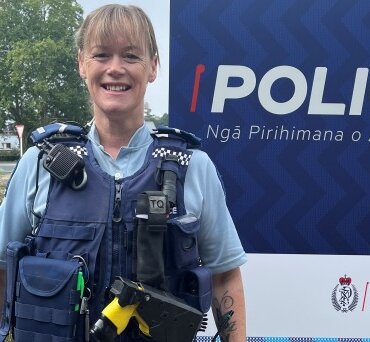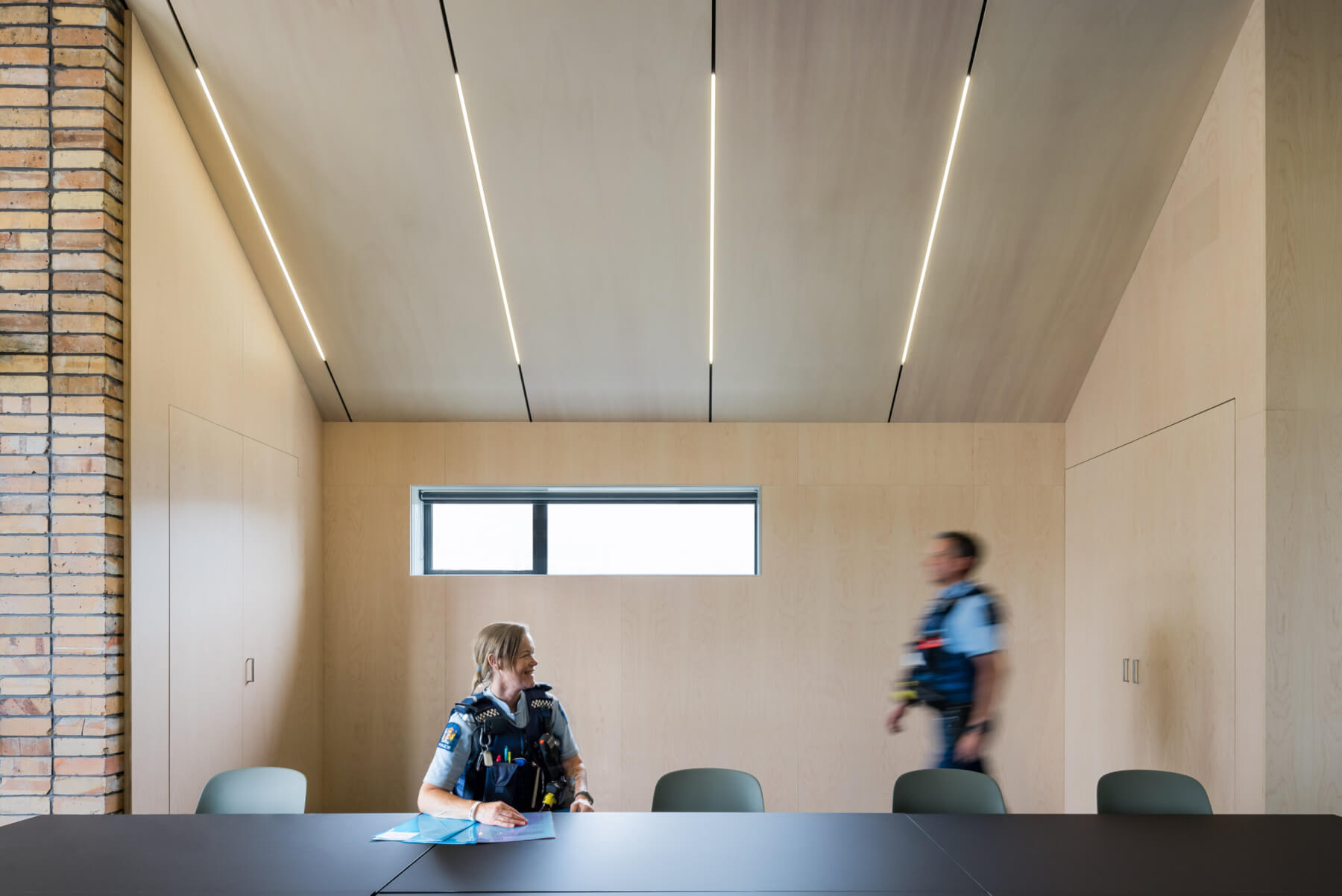
Deb Hann
Starting off with the week in review – after stopping a driver for excess speed in Ōhaupō, staff smelt cannabis. They conducted a vehicle search under the Search and Surveillance act, locating drugs, utensils, an offensive weapon and other indicators of drug dealing. A male will appear in court on related charges.

Senior constable Deb Hann inside the police station. Photo: Aaron Radford.
Late last week, Police received a report of an assault in Cambridge East. On arrival the alleged offender was cooperative and was duly arrested. He will also be appearing in court.
On Saturday night, a male was caught driving with excess breath alcohol. He was found to be breaching an alcohol interlock licence condition and then failed to remain stopped for police when required. His vehicle was impounded for six months and he faces associated charges in court.
On Sunday night, three youths were warned after a fight resulted from an apparent road rage incident near Waipuke Park, Maungatautari. Back in town, two separate retail businesses were targeted by a group of thieves who smashed their way inside, to burgle them. Investigations are ongoing.
Finally, on Monday night (Labour Day), we had a fresh spate of vehicle thefts. At the time of writing, that investigation is also ongoing. As always, when you see anything suspicious, please call 111 at the time. If you review CCTV and observe activity of note, please also do let us know. This could involve people walking onto your driveway or property, especially overnight, looking into cars or trying car door handles.
In policing, every day and every situation is different. Last week I mentioned assisting a dishonesty offender to address the drivers of his offending. Offending stems from varied issues: addiction, mental health, peer pressure, or survival needs like homelessness. As police, our role is not always just about the arrest, but also the opportunity to assist people to address the root causes that lead them to offend in the first place.
In doing so, we can interrupt the cycle in which they may be stuck and improve their overall situation. This in turn, importantly, reduces victimisation in our community. Sometimes the court process can result in mandated rehabilitation programmes, or otherwise be the catalyst for a change in the offender’s mindset and willingness to accept help. The latter is where support organisations can be engaged to provide assistance.
In each case, it starts with the person’s self-motivation and desire to change.








